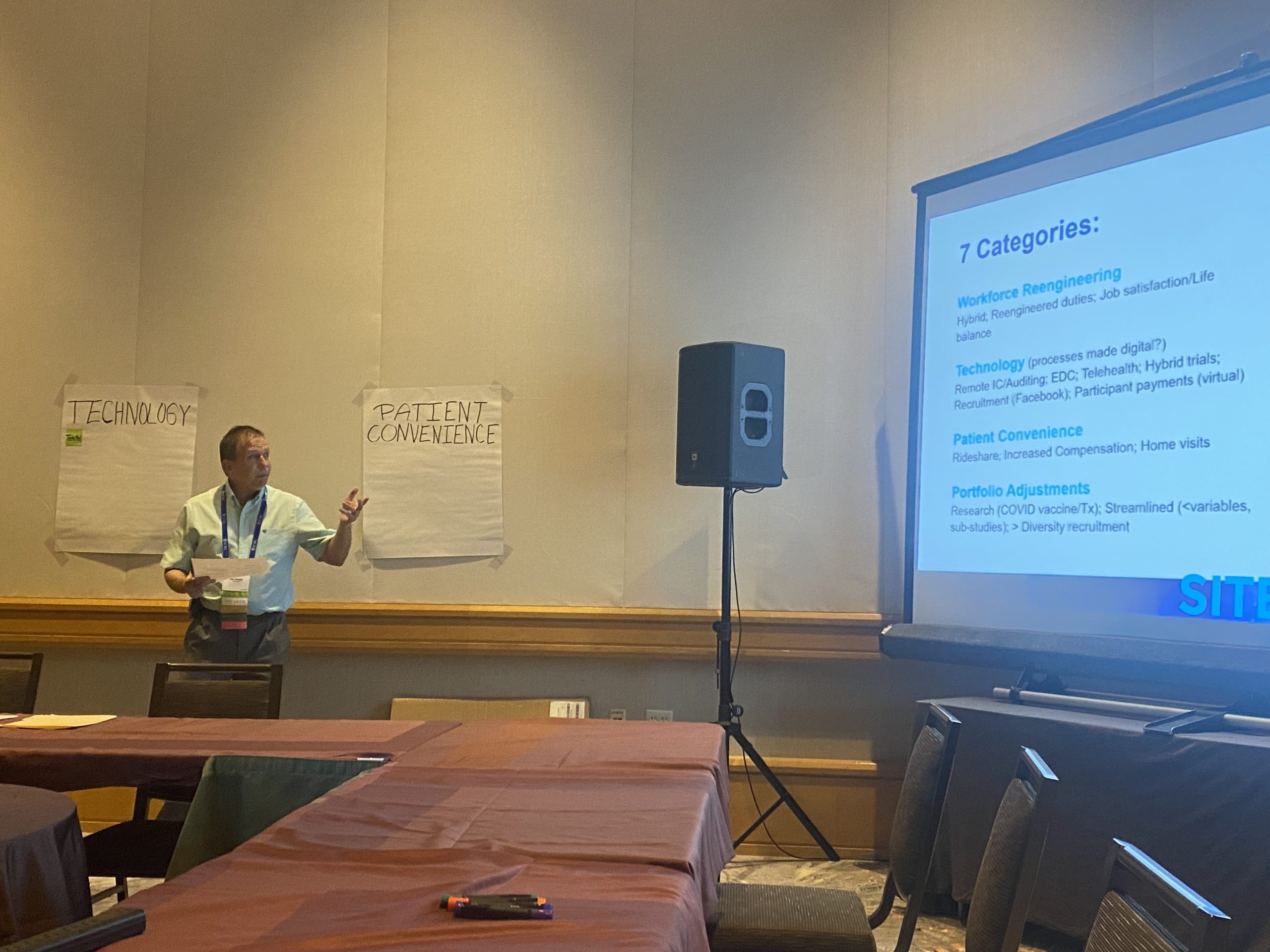I had the privilege of leading an interactive workshop this month at the Society for Clinical Research Sites (SCRS) Annual Conference in Hollywood, FL. The format involved the audience listing the challenges they experienced and best practices they developed over the past 1.5 years while navigating clinical research management throughout the COVID-19 pandemic. The audience was asked to comment on the following areas:
- Workforce Reengineering (hybrid/work from home)
- Technology Adoption
- Portfolio Adjustments
- Patient Convenience
- Budget/Contracting
And general comments in the areas of:
- Maintaining Professional Development (while remote)
- Key Impressions/Lessons Learned
One major observation I saw was how incredibly resilient the clinical trial workforce was throughout Operation Warp Speed. The SCRS members adjusted rapidly to new vaccine trials presented with a short lead time; managed budget changes and numerous protocol amendments; implemented telemedicine, remote informed consent and auditing technologies; and developed new, strategic study visit scheduling and work duties while working remotely. The stress and workload increase expressed by the audience in the workshop was palpable. Additionally challenging was the ability to maintain the financial bottom line at sites, retain staff and attract experienced staff if turnover occurred.
The difficulty of bringing sick patients with any condition to the clinic presented challenges amid the precautions necessary with COVID-19 as many sites adjusted their physical clinic layout and workflow of their study site. As a workaround, some groups offered home visits and/or shipped medications and other items to trial participants’ homes. Several sites acknowledged that these hybrid trial models are “here to stay” for many sites going forward.
For those charged with patients needing to conduct at-home eDiaries via ePRO devices, one solution sites repeatedly said was a benefit were ClinCard micropayments. A site who was involved with a large COVID-19 vaccine study said, “our patients would have never done the diaries if it wasn’t for the weekly micropayment reminder.” Another site said they were initially fearful of the administrative work of implementing micropayments for such a large, fast-moving study, but that they were “pleasantly surprised when they didn’t have to do anything to trigger the payments; they just automatically happened each week.”
In the area of budgeting and contracting, new line items emerged as sites charged for PPE and COVID testing equipment and new technology deployed to help support remote trial models. Many sites began new areas of investigation involving COVID and infectious disease/immunology or streamlined the breadth and complexity of their research portfolio. To stay engaged educationally, many professionals viewed online clinical research webinars and maintained continuous interactions with their professional organizations.
It was a period of multi-faceted and ever-changing challenges that required adaptation. But in the end, it was clear to me the spirit of professionalism and dedication to the science of clinical trials and commitment to finding effective vaccine and therapies for patients carried and inspired this group of clinical research professionals who gave so much of themselves (and continue to) during this very difficult time.
If you’d like to further discuss what worked for your research organization or Greenphire solutions, please don’t hesitate to contact me at joe.gough@greenphire.com.


